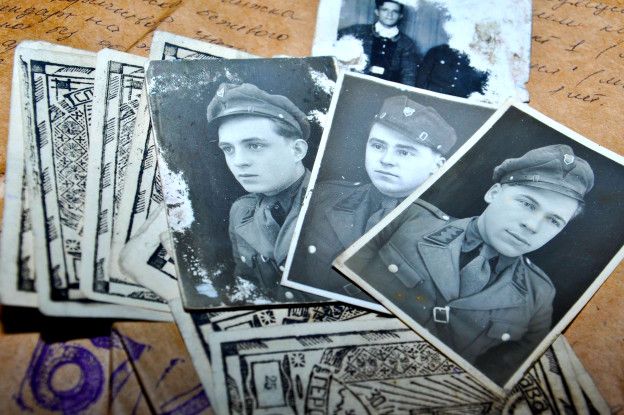Experts from the countries of the Eastern Partnership spoke about access to the archives of the communist secret services in their countries during a press conference held at the Ukraine Crisis Media Center in Kyiv.

Samvel Martirosyan, media expert, Armenia:
“Armenia demolished all the monuments to Lenin as early as the 90s. The State Security Committee (KGB) timely said that it was siding with the new authority. Armenia was considering the opening of the archives largely in the context of lustration but our archives have been closed so far. Everyone is afraid that there will be a lot of scandals because Armenia is a small country where everyone knows each other. However, it’s important for historians, political scientists, or analysts to have access to archives, and they must be open to them.”
Dmitry Drozd
, historian and archivist, Belarus:
“Not only do our Lenins not fall but, on the contrary, there are new ones. There are also new monuments to Stalin. Stalin Line Museum was created near Minsk, and there are Stalin Streets. There is a monument to Dzerzhinsky [founder of Soviet repressive organs] at the police school. In such conditions, there can be no question of the opening of documents. Historians in Belarus have no prospects of dealing with the field of the 20th century: the state does not support such topics.”
Igor Kashu, Director of the Center for the Study of Totalitarianism, History, and Philosophy of the Moldovan State University, Moldova:
“We de facto began decommunization and the opening of archives back in 2010 when the Commission for the Study and Evaluation of the Communist Totalitarian Regime under the President of Moldova was established. For some reason, the KGB archives are inside the [Communist] Party archives and not in the archives of the Security Service. We found many important documents, particularly about the 1946–1947 famine in Moldova and Bessarabia. A ministerial “special folder” cited 152 cases of cannibalism, a criterion that indicates the ultimate stage of the famine.
Opening of these documents is very important for the health of society. This is not just the past because, in words of the English historian, history for the society is like psychoanalysis for an individual. We can become healthy only if we again pass what our ancestors passed and free ourselves from it.
In Ukraine, not only the archives have been opened but also the information has been made public on what funds exist and what they can be searched for. We suppose that we may also have such funds but we do not know yet where to reach them. Ukraine today becomes an example of how to open KGB archives.”

Rafik Ramahanov, Archives of the Azerbaijani Security Service:
“We finished with the communists back in the 90s. Then people were burning their [Communist] party cards and demolishing Lenin monuments. They [party cards] have not preserved even in the archives. However, there is only partial access to the KGB documentation. Much secret information has preserved: about agents, secret informants, and the pieces stamped as 'classified.' Victims of repression and their relatives have the right to get acquainted with their case files but for this purpose they must provide relevant documents confirming the kinship. These requests are considered by a special expert council. There is no question about the complete opening of the archives.
Ukraine has done enormous work before the opening of the archives: information campaigns, work with focus groups, and expert interviews. This is a positive example of serving the people to restore the truth.”
Irakli Hvadagiani, Georgian Research Laboratory SovLab:
“It's nearly impossible for a researcher to be openly denied access to the files. The opening of the archives formally took place after the Rose Revolution. However, if they do not want to give out the file, they use two formulas: it either burned down or was carried to Russia. Some of the KGB archives were indeed burned down in Georgia in the 90s, and another part was transferred to Smolensk. In addition, this topic is not very popular among historians—for the most part, such documents are requested by foreign researchers who come to Georgia.
What prevents the work in the archives are the inconceivable prices. The cost of copying one page of a document is 1.50 euros. Imagine how much money you have to spend in order to write one small academic article. The fact that, in Ukraine, it is possible to take copies of the documents for free is really impressive.”
On 21–22 September, the seminar “Open access to the archives of the KGB: Ukrainian experience for the Eastern Partnership countries” was held in Kyiv. It was organized by the Center for the Study of the Liberation Movement with the support of the Czech Embassy in Ukraine. For two days, Ukrainian experts were discussing how to make the archives of the communist secret services open, which risks should be avoided, and how to talk about the evidence preserved in KGB documents.
In April 2015, the Ukrainian Parliament voted for the “decommunization laws” pack, including the law “On access to archives of repressive agencies of the 1917–1991 totalitarian communist regime.” Today, Ukraine has been one of the most liberal modes of legislation regarding access to the files among other post-Soviet countries: researchers can study archival files at no charge, make photocopies, and freely distribute the information.
Read also:
- Ukrainians discover stories of repressed relatives in newly opened KGB archives
- Difficult choice for Ukraine as identities of KGB agents finally come to light
- Summary of Ukraine’s four new decommunization bills
- Whose names disappeared from the map of Ukraine? Interactive decommunization map
- How public should the Soviet KGB archives be?
- Putin regime now seizing and destroying archives to whitewash the Soviet past

